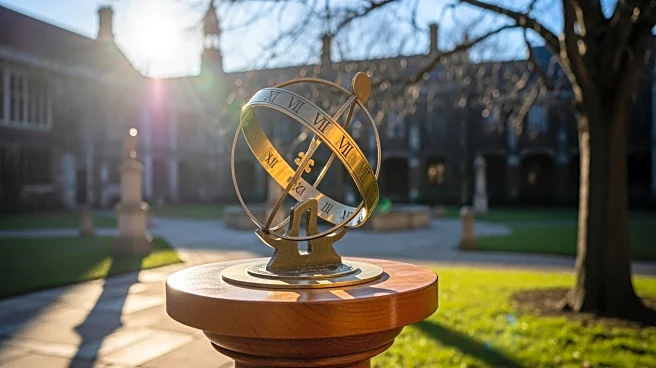What's Happening?
The Dallas Cowboys have traded star pass rusher Micah Parsons to the Green Bay Packers, including a 'poison pill' clause to prevent his acquisition by NFC East rivals, particularly the Philadelphia Eagles. The clause stipulates that if the Packers trade Parsons to an
NFC East team within the next two years, they must forfeit their 2028 first-round pick to the Cowboys. This strategic move ensures Parsons remains out of reach for the Eagles, who had shown interest in acquiring him. The trade also involved defensive tackle Kenny Clark, subject to similar constraints.
Why It's Important?
The inclusion of a 'poison pill' clause in the Parsons trade highlights the strategic maneuvers teams employ to protect their interests and maintain competitive advantages. By preventing Parsons from joining a division rival, the Cowboys safeguard their position within the NFC East. Such clauses can influence trade negotiations and player movements, impacting team dynamics and league competitiveness. The trade underscores the importance of strategic planning in player acquisitions and the lengths teams will go to secure their assets.
Beyond the Headlines
The use of 'poison pill' clauses in trades raises ethical and strategic questions about player mobility and team dynamics. While effective in protecting team interests, these clauses can limit player opportunities and influence league parity. The Parsons trade serves as a reminder of the complex negotiations involved in professional sports, where strategic considerations often outweigh individual player preferences. As teams continue to employ such tactics, the implications for player agency and league competitiveness will be closely examined.















